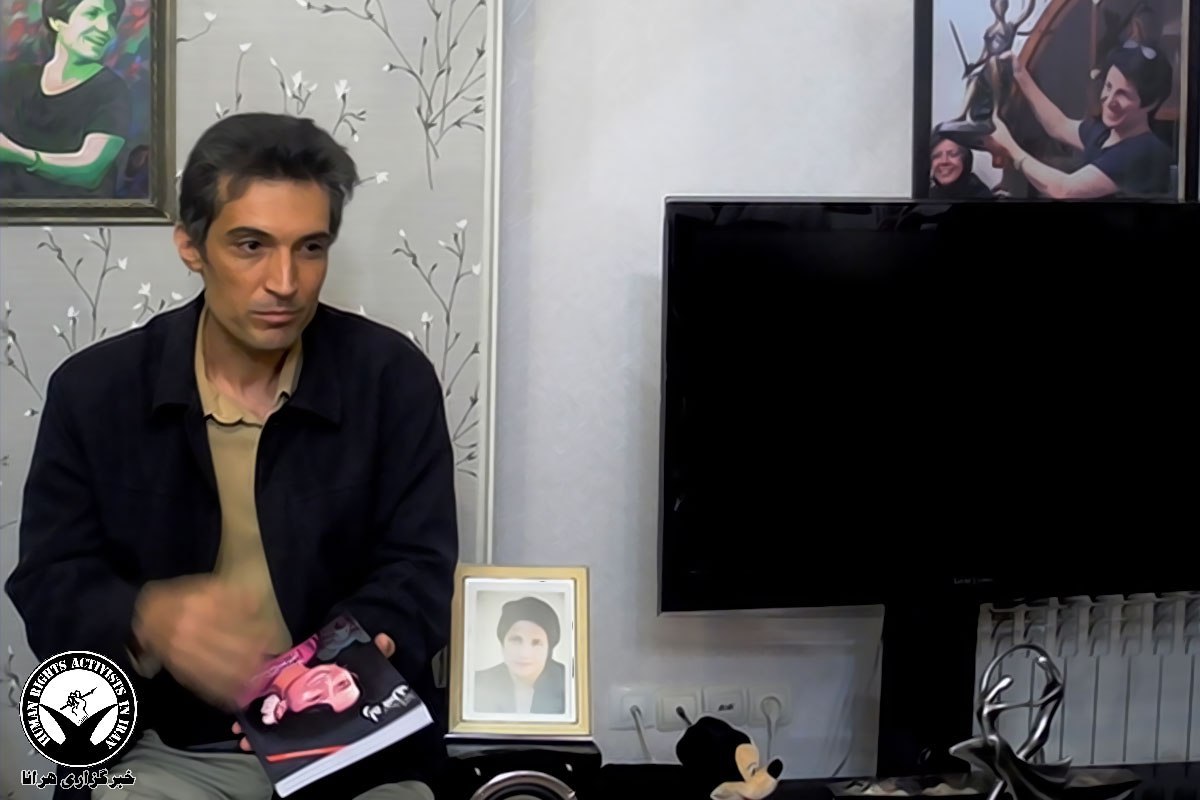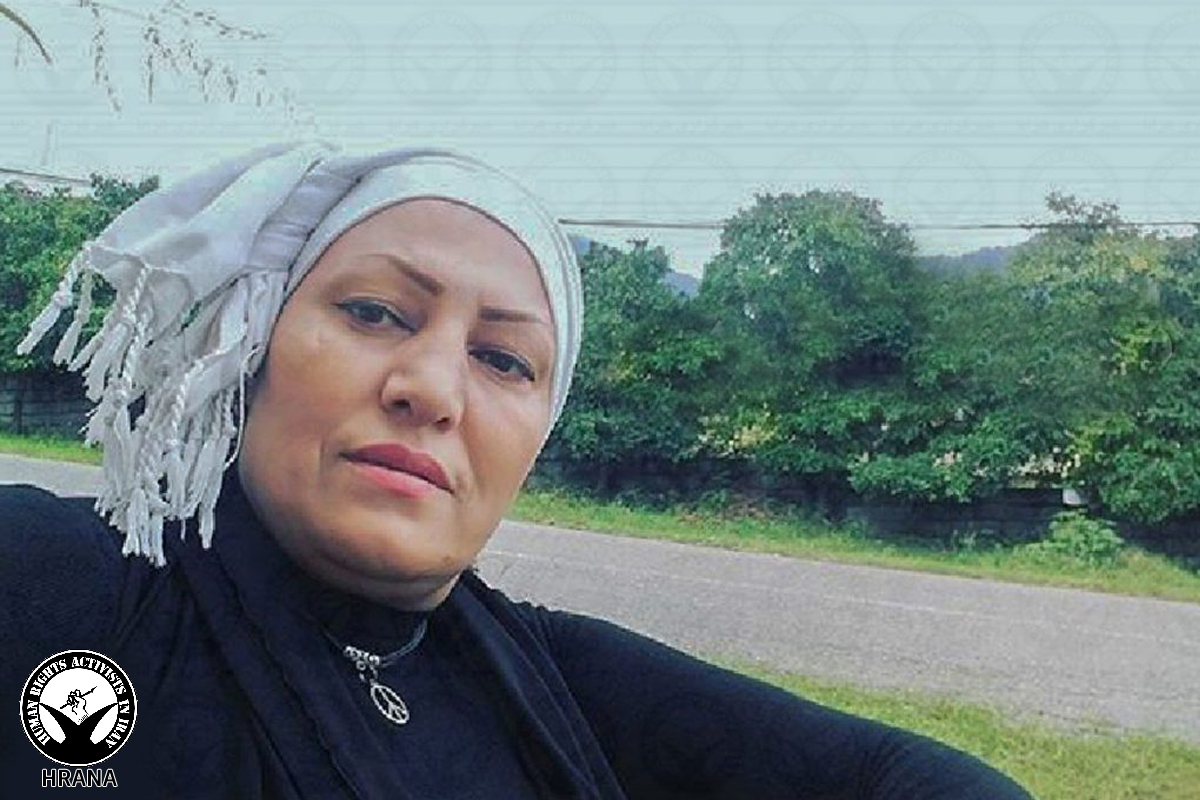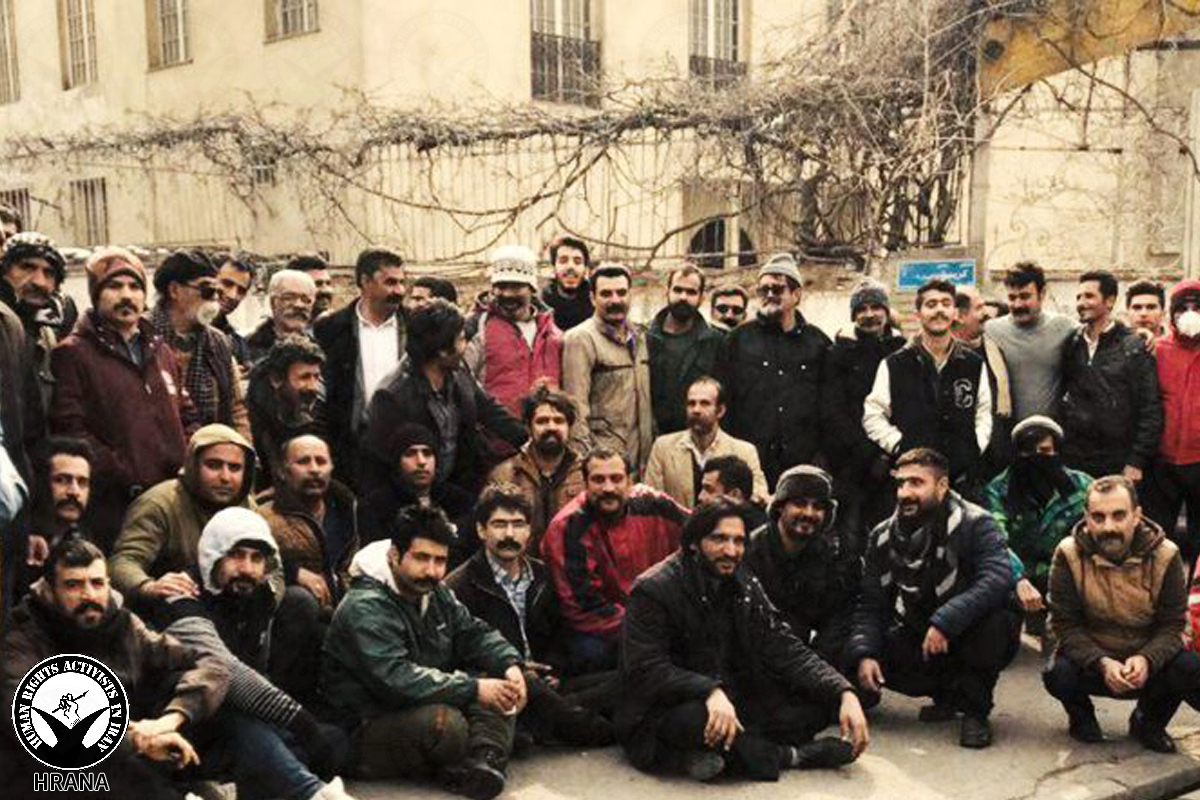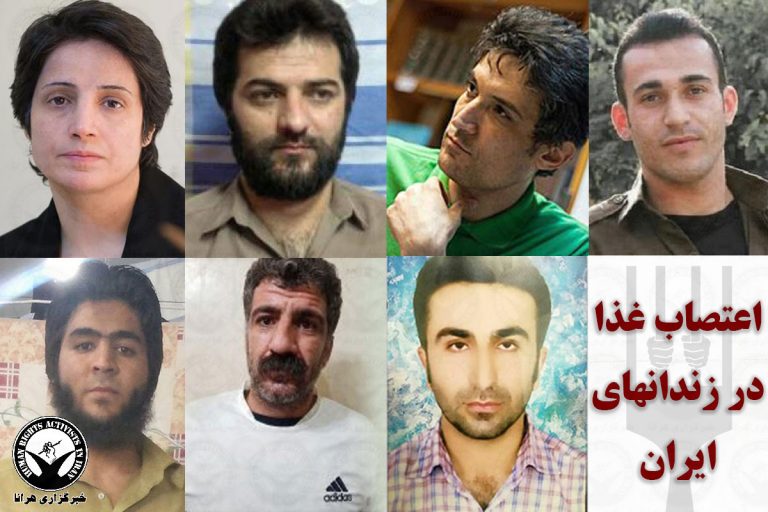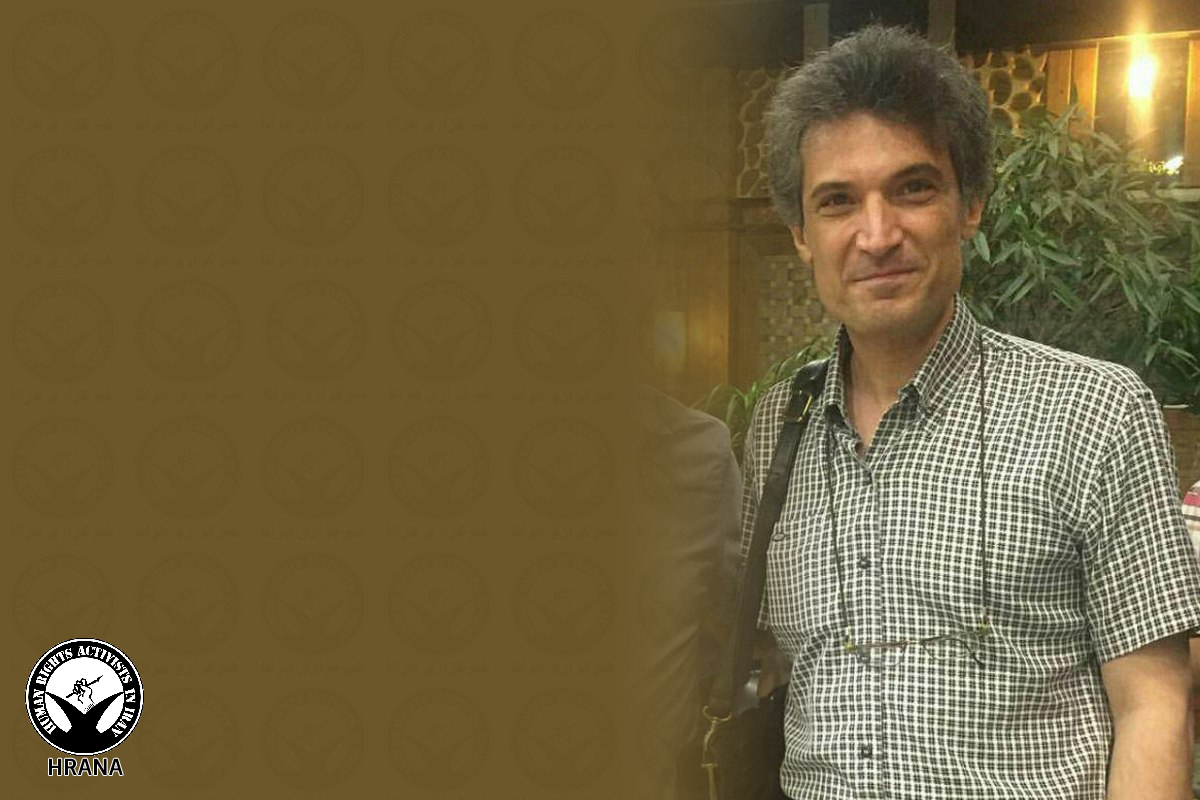Human Rights Activists News Agency (HRANA) – In the last few weeks, a number of prisoners across the country have declared hunger strike. HRANA has prepared a bulletin on their cases, previously reported in detail.
Nasrin Sotoudeh
Lawyer and human rights activist
Nasrin Sotoudeh started a hunger strike on August 25th in protest to her arrest and the judicial pressures being placed on her family, relatives, and friends.
She published an open letter outlining her reasons for the strike.
Ramin Hossein Panahi
Political prisoner
Sentenced to death, Ramin Hossein Panahi was recently transferred to Karaj’s Rajai Shahr Prison and declared hunger strike on August 27th by sewing his lips together. He is protesting his sentence and multiple violations of his legal rights. His lawyers published a statement sharing the reasons behind the strike. According to them, his whereabouts have been unknown since his August 26th transfer out of Rajai Shahr.
Farhad Meysami
Civil rights activist
Farhad Meysami was arrested July 31st by security forces. He started a hunger strike August 1st, protesting his arrest and the constraints being placed on his choice of attorney. He was transferred from Evin’s Quarantine Ward to the General Ward on August 26th, where he is reportedly suffering from low blood pressure and drastic weight loss.
Namegh Deldel
Prisoner of conscience
Sunni prisoner Namegh Deldel from hall 21, Ward 7 of Rajai Shahr Prison has been suffering from an injury to his right leg. In protest of his restricted access to medical care, including the prison’s refusal to transfer him to an outside hospital, he has been on hunger strike for more than a month.
Farhad Ariai (Sahrapeyma)
Political prisoner
Farhad Ariai (Sahrapeyma), a political prisoner in the Workers’ Ward of Urmia Prison, is in the sixth year of his seven-year sentence. Eligible for early release per Article 134 on the serving of concurrent sentences, he declared hunger strike on August 15th when the court refused to review his request thereof. According to a credible source, Ariai was transferred to the quarantine ward immediately after starting his hunger strike.
Ariai also declared hunger strike last year when prison officials denied his request for furlough. In response to that strike, prison staff forcibly handcuffed and transferred him to the Workers’ Ward of the prison, where he remains to this day.
Seyed Ghassem Abasteh
Prisoner of conscience
Seyed Ghassem Abasteh, a Sunni prisoner in Karaj’s Rajai Shahr prison, started a hunger strike on July 17th to protest his inadequate medical care and the prison’s denial of his access to a clinic. Despite developing asthenia and severe weight loss as of the fifteenth day of his strike, prison authorities continue to ignore his pleas.
His poor health condition has been repeatedly reported on, and in March, he was diagnosed with thyroid cancer. His condition has deteriorated to the point that he struggles to speak and breathe.
Abasteh is married with two children. He was arrested in early 2010 and sent to solitary confinement in Urmia Prison, which is run by the Ministry of Intelligence. He spent eight months there before being transferred to Evin Prison, where he spent six months in the solitary cells of wards 240 and 209. After 14 months, he spent another 20 days in Ward 350 of Evin before finally being transferred to Rajai Shahr on April 8, 2012.
He faces charges such as “militant activity”, accused of backing Salafi groups. He denied such involvement, saying the charges are baseless.
He has been awaiting trial since his 2016 prison sentence from Judge Moghiseh was nullified. He has thus far spent eight years in prison without due process.
Saman Rahmani
Saman Rahmani, a prisoner in the Health Ward of Saqez Prison, is on the verge of losing his arms after suffering an injury, yet continues to be denied the rights of furlough and access to a clinic. He started a hunger strike on July 20th in protest.
“Rahmani was to be sent to Karaj’s Rajai Shahr prison for care, but prison authorities changed their minds,” a credible source told HRANA.
When authorities promised him medical care earlier this year, he stopped the hunger strike he had started in June for the same reasons.
Farshid Nasseri
Prisoner of conscience
Sunni prisoner Farshid Nasseri of Rajai Shahr started a hunger strike on June 16th to demand his right to furlough. Twenty-eight days later, his condition had severely deteriorated. He suffers from back and neck problems, in addition to psychological issues stemming from his years spent in prison.
Verya Saed Moochashmi
On August 19th, on orders from a Ward chief penalizing their refusal to end their hunger strike, five prisoners from Ward 3 of Rajai Shahr were beaten and sent to solitary confinement. They were reportedly striking to protest issues with their respective legal cases.
HRANA understands these prisoners to be Verya Saed Moochashmi, Hossein Esmaeili, Saeed Moradpour, Mojtaba Kounani, and Alireza Kounani. As of yesterday, August 27, 2018, Moochashmi is the sole among the group to continue the strike.
In 1998, Moochashmi, then 17, was sentenced to death and 80 lashings when he was convicted of aiding and abetting murder. He has so far served 21 years in prison.



